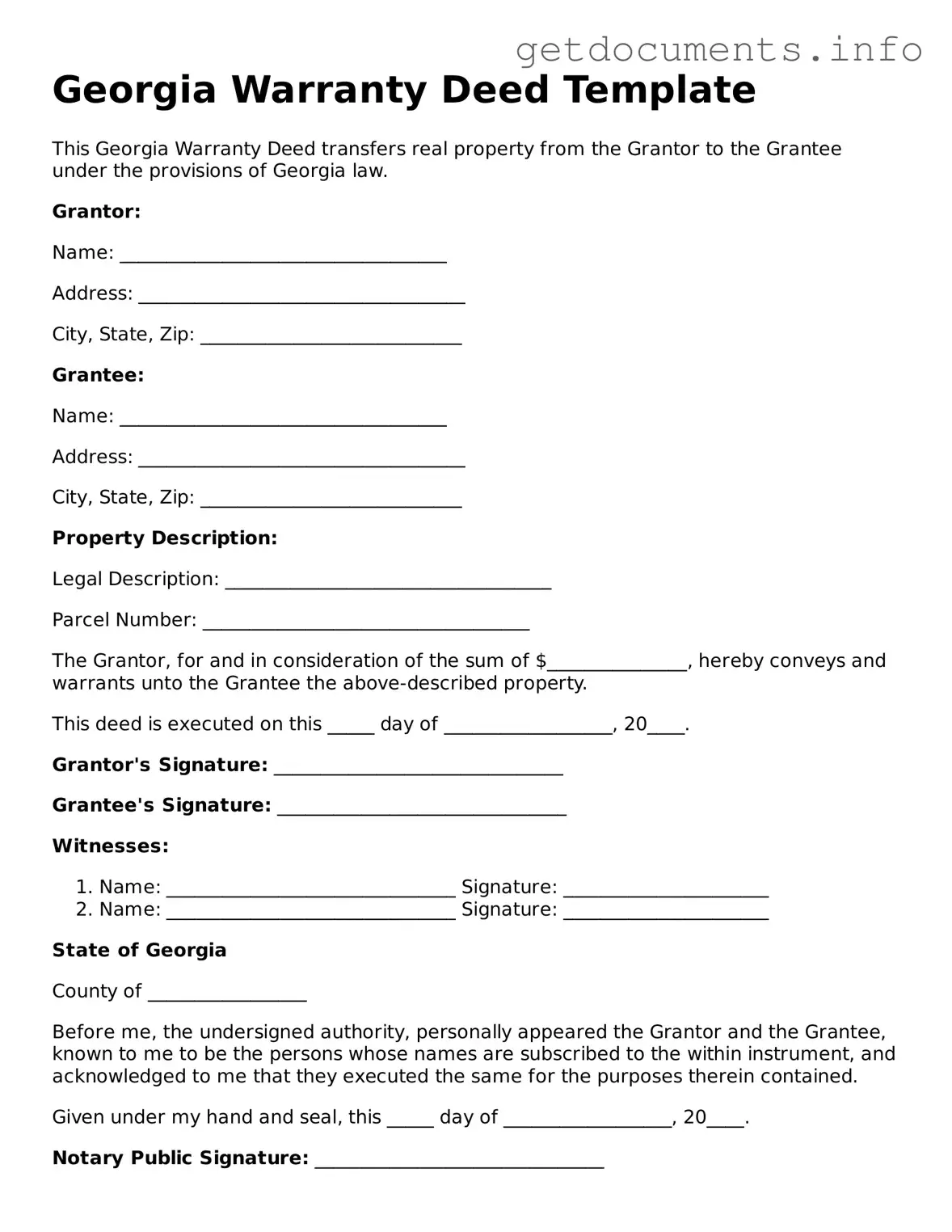Free Deed Template for Georgia
The Georgia Deed form is a legal document used to transfer property ownership from one party to another within the state of Georgia. This essential form ensures that the transaction is recorded and recognized by local authorities, providing clarity and security for both the buyer and seller. If you're ready to take the next step in your property journey, fill out the form by clicking the button below.
Access Deed Editor

Free Deed Template for Georgia
Access Deed Editor
Got places to be? Complete the form fast
Fill out Deed online and avoid printing or scanning.
Access Deed Editor
or
⇩ PDF File
